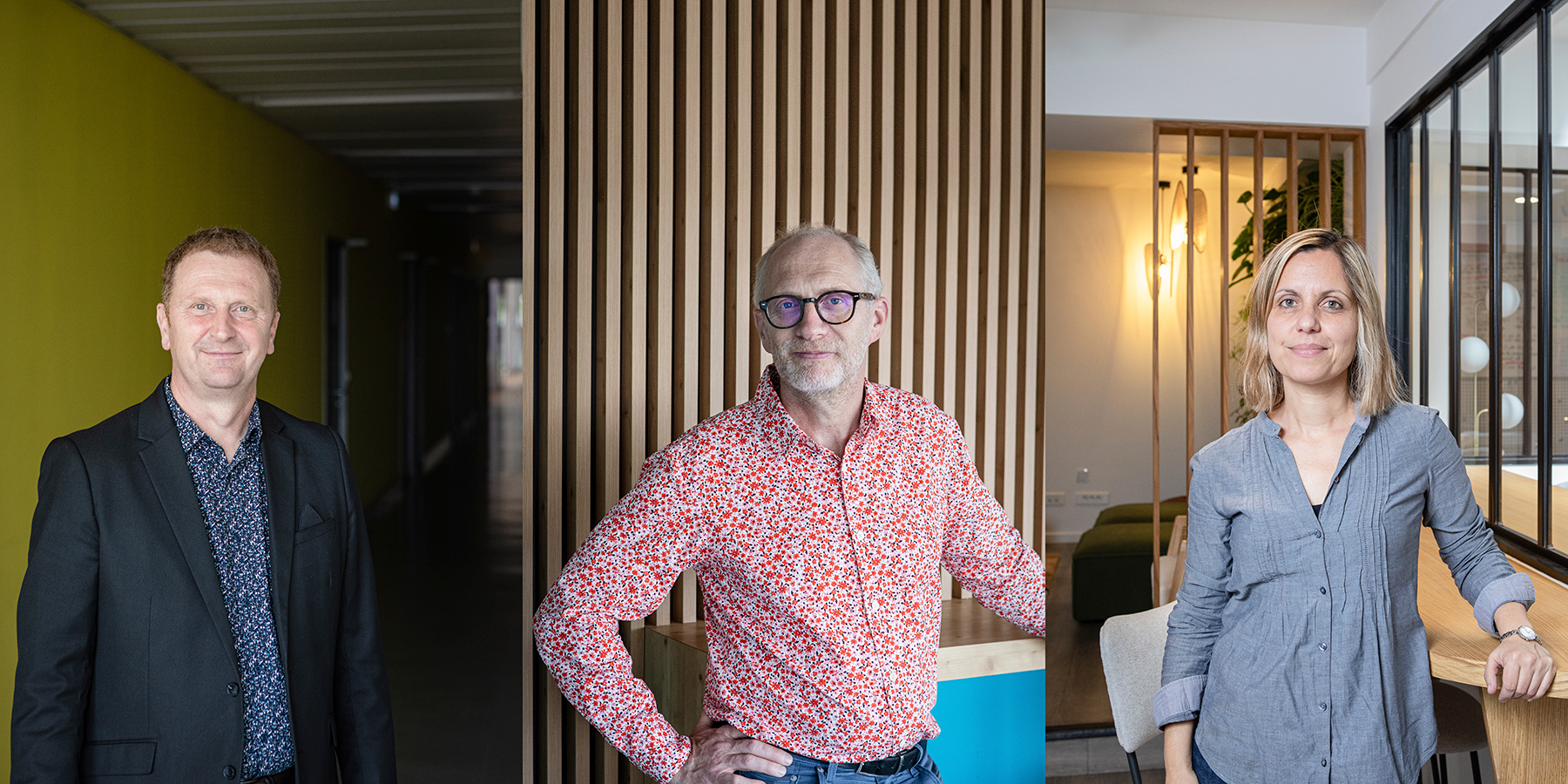
2024 CNRS Innovation Medal: meet the three winners
The chemist Cyril Aymonier, the physicist Lydéric Bocquet, and the quantum physics specialist Eleni Diamanti are the winners of the 2024 CNRS Innovation Medal. Since its creation in 2011, this award has honoured scientists recognized in their field whose research has led to remarkable technological, economic, therapeutic, or social innovation. The medal will be awarded to the three CNRS inventors in December 2024.
The careers of the three winners of the 2024 CNRS Innovation Medal illustrate the excellence and variety of research conducted at the CNRS, as well as the multiple avenues available for technology transfer. « "We are truly delighted to award the 2024 Innovation Medal to three brilliant researchers and seasoned inventors. In the fields of quantum physics, materials chemistry and physics, the three winners have distinguished themselves through the excellence of their scientific careers and the successful transfer of the results of their research to the socio-economic world. They are inspirational role models for their peers, passionate scientists who have taken up and won the challenge of transferring research results to the marketplace. This award recognises their commitment and efforts.» declares Jean-Luc Moullet, the CNRS Chief Innovation Officer.
Cyril Aymonier, supercritical fluids at the service of sustainable development
The CNRS Senior Researcher1 Cyril Aymonier works on synthesis, more specifically the creation and recycling of new materials using non-conventional and sustainable approaches. It is within “supercritical” environments—with specific temperature and pressure conditions in which solvents adopt behaviour between a gas and a liquid—that he and his team create new materials and recycled raw materials. This research has served as the basis for nearly fifty patents, leading to collaborations with enterprises such as Safran, Arkema, Imerys, Saint-Gobain, Umicore, Renault, Airbus, Essilor, Merck, and Schneider Electric. The applications range from artificial mineral synthesis to recycling photovoltaic cells, food packaging, and end-of-life thermoplastics. Aymonier is also behind the IDELAM start-up created in 2019, which uses a unique delamination technology to recycle complex multicomponent materials.
Lydéric Bocquet, the thousand potential applications of fluid control on the nanoscale
Producing electricity, desalinating seawater, and removing alcohol from beverages are just some of the applications growing out of the basic research conducted by Lydéric Bocquet, a CNRS Senior Researcher2 and pioneer in nanofluidics. This field, at the intersection of fluid mechanics and molecular and even quantum physics, allows him to create devices with innovative properties, membranes in particular. Bocquet has filed twelve patents and founded four start-ups: Sweetch Energy in 2015 and Hummink in 2020, along with Altr and Ilion. They offer solutions through diverse applications such as nanometric printing, removing alcohol from beverages such as beer and wine, desalinating seawater at lower cost or producing renewable energy with a membrane that utilises the difference in salt concentration between seawater and river water. Bocquet also serves as a scientific consultant for French industrial groups such as Saint-Gobain and Plastic Omnium, while developing his research in other areas including quantum engineering of nanofluid flows, and designing ionic nanomachines reproducing certain biological functions.
Eleni Diamanti, towards the revolution of quantum communications
A specialist in quantum technologies3 , Eleni Diamanti designs communication networks using photons as information transmitters. The work carried out by this CNRS Senior Researcher is laying the foundations for a quantum Internet that will be more robust against attacks, enabling critical information to be transmitted securely. Diamanti successfully brought this research out of the laboratory by co-founding Welinq, a start-up that develops quantum memories, especially atom clouds that trap and relay the information carried by photons. This capacity has proven essential in deploying long-distance quantum communication infrastructure, and also serves as a bridge between quantum computing processors. The Director of the Paris Centre for Quantum Technologies, a consortium for the future application of quantum technologies—notably including the CNRS, Inria, and Paris Cité, PSL, and Sorbonne Universities—Diamanti is highly involved in the French and European quantum computing ecosystem. Her recognised expertise has led to collaborations with Airbus, Deutsche Telekom, Orange, Thales, Onera, and the ESA.
Complementary documents :
CNRS Images photo essays : Cyril Aymonier, Lydéric Bocquet, Eleni Diamanti.

Contact
Notes
- Also Director of the Bordeaux Institute of Condensed Matter Chemistry (ICMCB, CNRS/Université de Bordeaux/Bordeaux INP).
- At the Physics Laboratory of l’École normale supérieure (LPENS, CNRS/ENS-PSL/Sorbonne Université/Univ. Paris Cité).
- At the LIP6 Laboratory (CNRS/Sorbonne Université).

